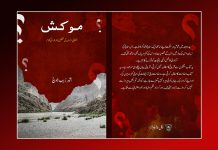The leaders of Pakistan’s ruling parties and individuals close to the establishment are shaping a narrative that the Baloch Yakjehti Committee and Sardar Akhtar Mengal lack public support in Balochistan, while also attempting to link them with terrorism. However, the massive gatherings across Karachi and Balochistan in response to the Baloch Yakjehti Committee’s call on Eid have sent a clear message: despite state oppression and violence, the people stand firmly with their leaders, including Mahrang Baloch, Sammi Deen, Bebarg Baloch and Sibghatullah in these difficult times.
The statements from controversial government officials in Balochistan indicate that they are unaware of the region’s objective realities. They are falsely associating leaders of the national resistance movement—who advocate for national rights—with terrorism. The ongoing protests across major and minor cities in Balochistan against the imprisonment of Mahrang Baloch and Sammi Deen clearly demonstrate that they enjoy support from all segments of Baloch society.
Recent policies of Pakistan’s ruling establishment regarding Balochistan make it evident that they intend to launch a large-scale military operation in the region. However, the outcome of such flawed decisions will be no different from past actions. Both parliamentary and non-parliamentary political parties in Balochistan have repeatedly warned that military operations will only worsen the situation rather than improve it. The public resistance movement has emerged in response to state oppression and injustices, and any military action in Balochistan will only deepen the wounds of the Baloch people. By promoting the narrative of military operations, Pakistan’s ruling authorities will further complicate political issues.
Military operations and state repression have never succeeded in eliminating the Baloch national movement in the past, nor will they succeed now, as the movement is rooted in public support and the nation’s sympathies remain with it. The Baloch issue is a political one, and it cannot be resolved through military operations but only through the recognition of objective realities, granting national rights, and acknowledging the right to self-determination.




























